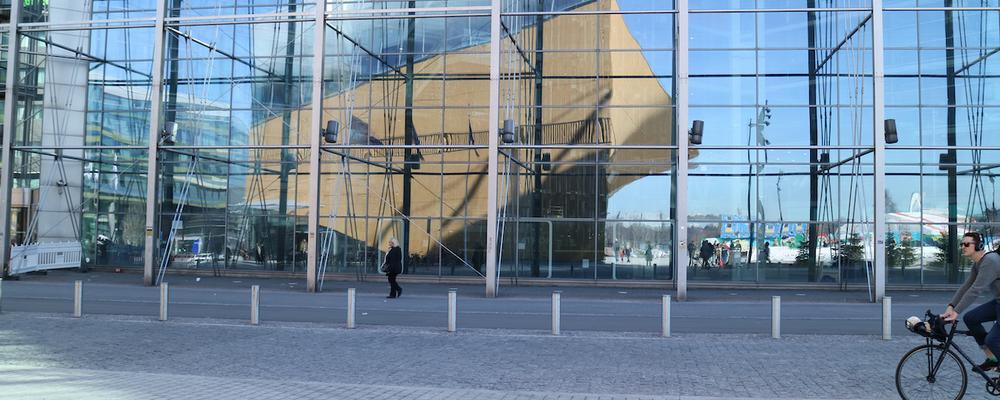
Curating the City: Research
This research cluster addresses the existing city from perspectives that arise from the notion of curating / the curatorial. Our field of concern is situated at the crossroads of several overlapping research fields, such as architecture, conservation, craft, design, literature, history, cultural studies, planning and archaeology. General strands
Reproduction / Maintenance – focus on a wide range of practices vital for the long-term sustainable maintenance of the city as fabric and materiality.
Techniques / Methodologies – focus on “curatorial devices” that address an urban mnemonic topography beyond authorized and designated heritage.
Complexities / Ecologies / Identities – focus on place-making and place-keeping processes in which interpretation, protection, preservation are linked together in complex overlapping and intersecting spatiotemporal ecologies.
EMERGENT RESEARCH THEMES
Co-curating the city: Universities and communities shaping postcolonial urban heritage narratives and lived experience for the future.
The city as mnemonic device: Forgetting and remembering through the city
Topographies of knowledge production: Intersectional and artistic perspectives on knowledge production in urban settings
Sites of transition: The heritage of migratory spatial practices within urban settings
Urban Imaginaries: Imaginaries of the city and its hinterlands - environmental, humanistic and artistic perspectives
1. Co-curating the city: Universities and communities shaping postcolonial urban heritage narratives and lived experience for the future.
- Guest researcher : Clare Melhuis, UCL Urban Lab
- PhD position: CHSEurope Curating the City (group of four PhD:s). The role of city museums and of models/ modes of heritage analysis and formatting
- Workshop I London
- Workshop II Gothenburg: ”In this second of two site-based, invitation-only workshops organised by UCL/UGOT Centre for Critical Heritage Studies and the Curating the City research cluster in collaboration with Project Campus Näckrosen the aim is to take these issues one step further, building upon and extending the various frames introduced in workshop one, ranging from issues of power, truth-speaking and territoriality and the configuration of the global/local to issues of identity formation, retroactive causality and the projection of futures, negotiated through and challenged by urgencies within as well as outside academia, and consider their actualization in the context of Gothenburg and the University of Gothenburg, mirrored in the UCL Bloomsbury/UCL East context as well as other sites of actualization.”
2 The city as mnemonic device: Forgetting and remembering through the city
- Sabbatical TU Berlin
- Research conference session EAUH 2016, Helsinki
- Research project Hidden sites of London, People-Based Conservation (UCL)
- Research project Maintenance matters. Exploring common contexts of heritage (e)valuation
- VR 2017-2020, 2 researchers PhD (UGOT)
- Research project Re:heritage - Circulation and Commodification of Things with History (VR 2014-2017), work package “Sites and localities as re:heritage”
- Guest professor: Prof. Dr. phil. Gabi Dolff Bonekämper, Fachgebiet Denkmalpflege, Technische Univ zu Berlin (Riksbankens Jubileumsfond Humboldt Stipend 2017)
- Seminar series: “Reconstruction”
- Book in Curating the city Publication series: Holmberg, Palmsköld, Barnholdt (2017) Återbruk och byggnadsvård. Cirkulering av delar och detaljer från äldre byggnader, [Circulation of parts and pieces of old buildings].
3. Topographies of knowledge production: Intersectional and artistic perspectives on knowledge production in urban settings
- Research project: TRADERS – Training art and design researchers in participation for public space (Marie Curie Multi-ITN 2013 – 2017)
- Research project: Critical Heritage and Queer Space
- Biennale Urbana Venice 2017
- Research Conference session, PARSE
4. Sites of transition: The heritage of migratory spatial practices within urban settings
- Research projects: MinK (Swedish National Heritage Board 2016). “Today heritage is increasingly recognized as plural and heterogeneous. Hence, it is necessary to find new ways to meet the challenges that follow from such an understanding of heritage. The groups that are today designated as National minorities in Sweden – the Sámi, the Tornedalers, the Jews, the Roma and the Sweden Finns – have each, and through a long historical stay within the national borders, deposited traces in landscape and collective memory. Nevertheless, the historical places of these groups generally gain only little explicit recognition by people in general and also by the official heritage sector.
Departing from recent research on the official heritage sector's identification of the historical places of one of these groups, the Roma, this project aims to continue the task by providing a survey of also the remaining National minorities – the Sámi, the Tornedalers, the Jews and the Sweden Finns. Researchers: Ingrid Martins Holmberg & Katarina Saltzman, Department of Conservation. - Research projects: Caring for Hinemihi: A Maori meeting house in the UK
- Research seminar: Laia Colomer, postdoctoral researcher, Marie Skłodowska-Curie Fellow, Linnaeus University: ”Sites of transition, migration and heritage”
4. Urban Imaginaries : Imaginaries of the city and its hinterlands - environmental, humanistic and artistic perspectives
- Book in Curating the city Publication series: Memories of a city, Eds. Westin & Holmberg
- Yearly Prize for Best Published Paper in City & Society 2016: Melhuish (2016) 'The real modernity that is here’: understanding the role of digital visualisations in the production of a new urban imaginary at Msheireb Downtown, Doha”, City and Society 28:2. SUNTA, Society for Urban National and Transnational/Global Anthropology

